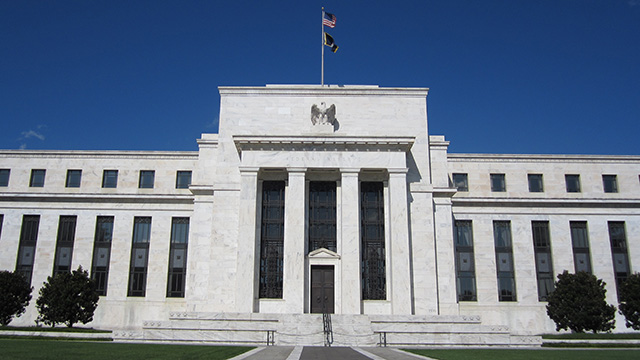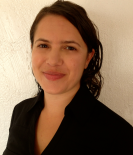This post first appeared at Demos.

The Federal Reserve (Photo: futureatlas.com/flickr CC 2.0)
If the Federal Reserve were democratic, there’s no chance it would raise interest rates.
The Fed is nearing a decision on when to raise rates for the first time since 2008. But raising them now would be a disaster: the Fed would quash economic growth and keep wages and employment from rising.
Despite exit polls from the 2014 midterms showing that seven in 10 voters think the economy’s in bad shape, several influential members of boards around the country have called for raising interest rates. Philadelphia Federal Reserve President Charles Plosser epitomized the trend, telling CNBC recently that “there are many indicators that interest rates are too low.” Meanwhile, Chair Janet Yellen, while keeping her views on interest rates to herself, has taken the unprecedented step of denounced growing inequality, arguing “the extent of and continuing increase in inequality in the United States greatly concern me.”
This recovery has seen weak to no wage growth. While the unemployment rate has dropped, the jobs added have mostly been in low-wage fast food and retail jobs. Meanwhile, the pain has been most concentrated on those with the least power in our society: communities of color. African-American men have an unemployment rate double that of other Americans.
Plosser, and elite proponents of raising rates, look at the economy differently than the average American. That’s because the Federal Reserve and its regional banks aren’t made up of representatives of regular Americans — instead, corporate leaders dominate.
By the Fed’s own laws, regional Fed boards should represent consumers and labor. Right now, they don’t. A recent New York Times analysis found only two of 72 non-bank regional board members come from labor. Only eight are leaders of community groups. But over 80 percent of those board members represent corporate interests.
Monetary policy, which seems remote from the lives of ordinary people, defines much of what economic justice advocates are able to accomplish. To achieve economic justice, we need a Federal Reserve that actually reflects the American people.
A coalition of groups, including Demos, are launching a campaign to make the Fed more democratic. In our open letter to the Fed, we call for keeping interest rates low and prioritizing full employment and rising wages in policy, and for Fed officials to actually represent the public. Today, we met with Fed Chair Janet Yellen and our message was simple: the economy hasn’t recovered for the vast majority of Americans.
This broad coalition is mobilizing to make the Federal Reserve more responsive. This summer, a group of American workers made the case during a remote Federal Reserve conference in Jackson Hole, Wyoming. Shemethia Butler, an unemployed DC resident, flew to the conference to tell the bankers, “things may be fine on Wall Street, but they are not fine on my street.”
Many Americans believe that the unelected Fed is immune to public protest. But that perception isn’t entirely right. Even while Republicans have taken control of Congress, making legislative progress on economic issues unlikely, five seats on the Federal Reserve’s Open Market Committee (which will decide whether to raise interest rates) are reserved for members of 12 regional representatives. Who those representatives are matters so much for our future.
The public should be able to influence Federal Reserve policy, and have a say in the crucial macroeconomic policies that the central bank makes. Having a transparent and inclusive process to elect the five regional Federal Open Market Committee regional bank heads would be a good place to start. Right now, the process is all behind closed doors. Two seats are up soon — Charles Plosser’s at the Philadelphia Fed and Richard Fisher’s at the Dallas Fed. Both men have been prominent proponents of tightening monetary policy.
St. Louis Fed President James Bullard commented that these regional bank board elections enable the Fed to “get voices from around the country on these important decisions that are being made.” It’s time for them to fulfill that promise. Even while the Fed’s role in the economy has become more crucial than ever, it has become more insulated from the public. Monetary decisions profoundly affecting racial and economic justice are too important to leave to an insulated elite.
The views expressed in this post are the author’s alone, and presented here to offer a variety of perspectives to our readers.


